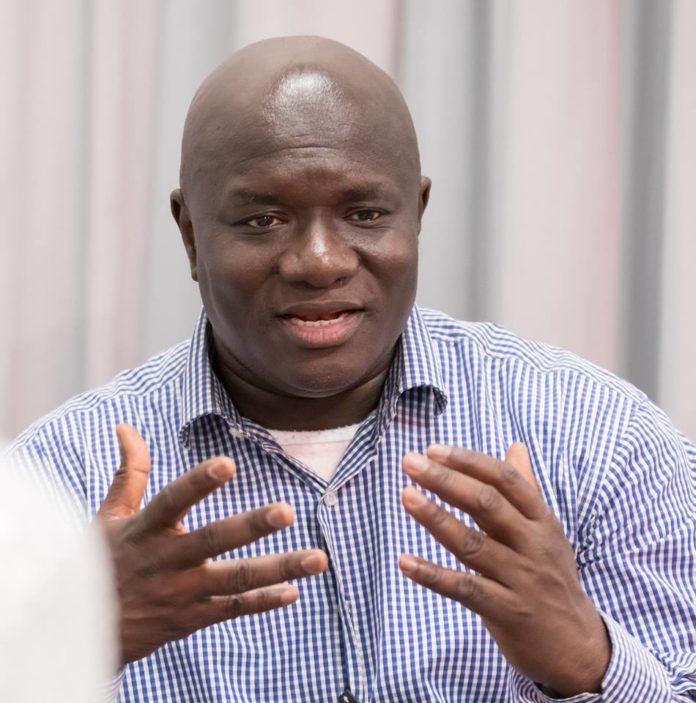The altercation between the Speaker of the National Assembly Mariam Denton and the Member for Serre Kunda Halifa Sallah is utterly unfortunate, uncalled for and a direct threat to our democracy for which the Speaker must be held to account. The reports that the unfortunate matter arose out of the discussion on the proposed loan agreement between the Gambia and China raises more questions as to the intentions and the conduct of both the Speaker and the Minister of Finance Amadou Sanneh. From all indications it is clear that Halifa Sallah was merely fulfilling his legal and political obligation as guaranteed by the Constitution as a Member of the National Assembly.
Part III of the Constitution, i.e. from Sections 100 to 102 speaks about the legislative and political powers of the National Assembly which includes scrutinizing the Executive and the bills and motions it brings to the parliament. In fact Subsection 2 of Section 101 states that,
“No Bill, other than a Bill referred to in subsection (5), shall be introduced into the National Assembly unless it is accompanied by an explanatory memorandum setting out in detail the policy and principles of the Bill, the defects which it is intended to remedy and the necessity for its introduction.”
Furthermore Section 155 speaks about how loans and loan agreements are to be contracted by the Gambia Government. Subsection 4(a) of this provision states that an Act of the National Assembly authorising the raising of a loan shall provide,
“That the terms and conditions of a loan shall be laid before the National Assembly and that the loan agreement shall not come into operation until they have been approved by the National Assembly.”
Hence according to these constitutional provisions, Halifa Sallah had indeed done the right thing to demand the details of this loan agreement brought forward by the Executive. In that case what is expected of the Speaker is to create the enabling environment by allowing members to exhaustively discuss all issues and concerns surrounding the loan before a decision is taken. This would require that the Speaker also ensure that the Minister of Finance provide all the necessary details of the agreement for the appreciation of the members.
It is therefore extremely concerning that the Speaker failed to do that but to seek to prevent a member of the National Assembly to raise the necessary issues, concerns and questions about this agreement. While the Constitution under Section 110 stipulates that a member can be removed from the parliament for contempt of the National Assembly, yet the remarks of Halifa on this loan agreement did not constitute any misconduct or contempt. Hence it is indeed heavy handed for the Speaker to demand the removal of Halifa when he sought to fulfil his constitutional duties on this loan agreement.
It is important that the Speaker is reminded that her role and position in the governance and development of the Gambia is very significant as set out in the Constitution. In multiple provisions of the Constitution the role and position of the Speaker can be identified as a leader, enabler, facilitator, decision maker and guide. For that matter the Speaker should be a person who should exercise the utmost patience and tolerance and to inspire and encourage debate in parliament given that the National Assembly is the foundation of our democracy.
We must also bear in mind that a loan is not a matter that must be rushed and imposed on the country. This is because the loans we contract today are going to be paid by citizens of today and tomorrow and those yet unborn. Hence any loan that goes to the parliament must be subjected the most severe scrutiny and debate. The Speaker must therefore serve as a facilitator and not an obstruction to that debate.
We must also remind the Speaker that she is the third in command in the leadership of the Gambia. In Sections 64 and 65, the Constitution states that it is the Speaker, in the absence of the Vice President who should assume the position of the president when the president is temporarily incapacitated mentally or physically, or when the position of president is vacant due to death, resignation or impeachment in which case the Speaker will serve the rest of that tenure.
Given the above, it means the Speaker must therefore exercise the highest levels of leadership which includes demonstrating an attitude that exhibits dignity, tolerance, esteem, wisdom, maturity and conciliation. In that case, the Speaker must be a person who is not expected to lose her cool or become temperamental especially inside the National Assembly. No amount of provocation or misconduct by any member should warrant her to respond in like manner. As the representative of the people, the Speaker must at all times reflect the dignity of the Gambian Nation.
Having said that, it is also necessary to remind the Speaker that after all she is not an elected Member of the National Assembly such that even if she is the Speaker, she must be mindful in expelling an elected member out of the house. Halifa Sallah is a directly elected representative of the people while Mariam Denton is only a nominated member by the President without the consultation and consent of the people of the Gambia. Hence the Speaker must therefore exercise humility to realize that, even if the Standing Orders of the National Assembly gives her power to remove members for misconduct or contempt, yet elected members are the true representatives of the people. In this particular case, Halifa Sallah’s words and actions did not, in anyway, constitute misconduct or contempt or obstruction in the National Assembly.
For the Gambia Our Homeland.









